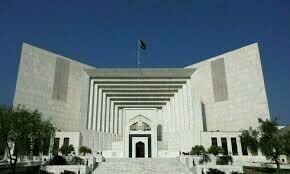
But, as Vidya Subrahmanyam, pointed out in The Hindu, he’s far from being the first person to have become chief minister for the third time in Indian politics.
Nevertheless, since Modi, who presided over the state of Gujarat when about 1,000 persons, most of them Muslims, were slaughtered in 2002, has national ambitions and has been winning election-after-election, his victory is significant.
Already, there’s a massive clamour, muted in his own party, the BJP, but very loud on television screens in the country, that Modi should become the party’s prime ministerial candidate for Lok Sabha, or national elections, due in 2014.
It’s almost as if there is a media business plan in place to create a space for Modi in national politics. Every question from TV anchors to the BJP leadership and others is the same: will Modi be the prime ministerial candidate for the opposition party come 2014?
That’s unlikely to change anytime soon.
In fact, as the 2014 elections approach, the clamour for Modi is going to grow louder – it will be helped along by the noisy, 24/7 channels that believe they make national politics – as well as big business which is of the opinion that the Gujarat Chief Minister is a role model.
For the foreseeable future, Modi will continue in Gujarat, but has made his national ambitions very clear when he said his victory was for Indians living beyond the state boundaries of Gujarat.
His image of a “hard” leader, the one who has led Gujarat on the path of development has been assiduously built over the years. The current election was ostensibly fought on the “development” plank, one he would like to take on to the national stage.
Many have picked big, gaping holes in his development story, but that did little to sway many Gujaratis, who believe that Modi is the man for them. In fact, in debate after debate, it’s been shown that Gujarat was growing much before Modi became Chief Minister, but that seems to have been lost in the media din.
So, here’s where spin and win become critical.
It doesn’t really matter what you have done, but it’s what you have projected to have done. Whether it’s on television or on social media, Modi and his supporters have positioned themselves for attacking all those who believe that India stands for all Indians, and that the country’s Constitution is a secular one.
In my conversations with many ordinary Gujaratis, it’s clear that Modi’s “development” plank is a code for excluding the minorities and the poor, who don’t figure anywhere in his “aspirational” politics.
The fact that not a single Muslim contested on the BJP ticket in all the 182 seats in the Gujarat state assembly is commentary enough. But just visit any of the Muslim ghettos in the city of Ahmedabad and they will tell you that nobody – not Modi or the BJP – or even the Congress party – are interested in their lives or welfare.
In a House of 182, only two Muslim MLAs (from the Congress party) have been elected. For a state which has a Muslim population of 10 per cent, that’s commentary enough.
After the 2002 killings, Modi has ensured that the politics of polarisation continues as the real text of his development platform. He has played on the fears of the majority and ensured his return to power. By referring to a Muslim Congress leader as Ahmed “Mian” Patel, Modi once again displayed the depths to which he can sink.
But the Congress party has shown itself incapable and inept in rising to the challenge posed by Modi. The party’s refusal to take Modi head on and their obvious tactical failures ensured that the Chief Minister is being allowed to continue his divisive politics.
A senior BJP leader, who preferred to remain anonymous, said the Congress party had lost the plot on account of poor selection of candidates.
Even with all the media support and the backing of big business, it’s not going to be easy for Modi to carve out a space for himself in India’s national politics.
The country is simply too diverse for a divisive and polarising leader like Modi.

The views expressed by this blogger and in the following reader comments do not necessarily reflect the views and policies of the Dawn Media Group.











































